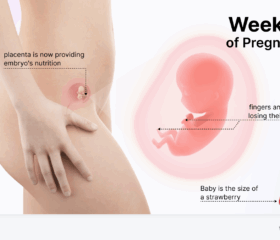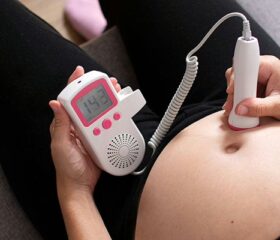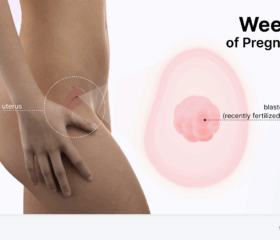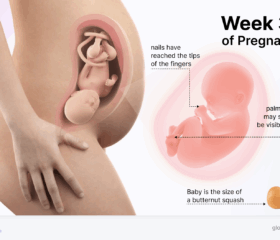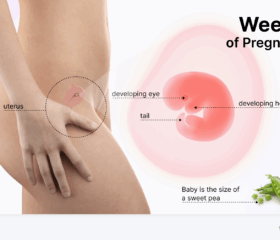How to Cope During the Two-Week Wait
Everyone who’s trying to conceive experiences the two-week wait (TWW)—which can feel much longer than it actually is.

In a nutshell, the TWW is the period after you have sex when you’re waiting to find out the results of your efforts.
The term can be misleading, as not everyone’s TWW will actually be two weeks. How long is it, really? More to the point, is the TWW actually necessary? Why can’t you take a pregnancy test the day after you conceive?
Read to find out the answer to those questions and get practical tips on navigating the (often anxiety-inducing) two-week wait.
What is the two-week wait?
Also known as the luteal phase in medical terms, the two-week wait (TWW) is the time between ovulation and your next period—or, if you successfully conceived, that positive pregnancy test. 1
Two weeks is just an average; it assumes a regular 28-day cycle. Most women ovulate around day 14 or 15, meaning there’s 14 days (two weeks) between their most fertile time and the end of their cycle.
Depending on the length of your cycle, the TWW may actually range from 7 to 19 days. 2
Can you find out if you’re pregnant earlier?
If you’re desperate to find out whether you’re pregnant before two weeks pass, you’re not alone.
However, while sperm can fertilize the egg essentially as soon as you ovulate, at-home pregnancy tests can’t give accurate results until the day after your missed period. 3 4 That’s because the hormone they test for, human chorionic gonadotropin, only becomes concentrated enough in your urine around the time your period would normally have been due.
It is possible to test for pregnancy earlier (before you miss your period) with a blood test, but those aren’t available over the counter at pharmacies; they need to be administered by healthcare professionals. It usually isn’t worth going to the doctor’s office for a blood test just to find out whether you’re pregnant a little earlier than you otherwise would.
The upshot is that in most cases, you’ll just have to sit tight and wait for the TWW to pass before taking a pregnancy test.
What pregnancy symptoms should you look out for during the TWW?
Even if you successfully conceived, you won’t necessarily have any noticeable symptoms during the two-week wait. Missing your period is often the first sign that suggests you’re pregnant.
With that said, some women experience light spotting, known as implantation bleeding. This results from the fertilized egg implanting in the lining of your uterus.
You might also see other early pregnancy symptoms crop up during the TWW, including: 5
- Breast pain or swelling
- Fatigue
- Nausea and vomiting
- Frequent urination
- Mood swings
- Headaches
- Changes in your appetite
These symptoms aren’t sure signs that you’re pregnant. The reverse is also true: not having these symptoms doesn’t mean the implantation was unsuccessful.
Unfortunately, you won’t know for certain until you take a pregnancy test after the TWW.
What should you do during the TWW?
When you’re trying to conceive, especially if you’ve been at it for a while, the TWW can feel like an eternity. You may go through an emotional rollercoaster—one day will be filled with hope, the next full of fear you’ll get a negative result.
All of this is normal. Here are some practical tips that can help you deal with your anxiety and get through the TWW:
Focus on self-care and keep busy
To spare yourself from incessantly worrying, make time for activities that usually relax you, such as yoga, reading good books, listening to calming music, or spending time in nature.
Even just a few minutes of daily mindfulness exercises can reduce your anxiety and calm you down. You can try a guided meditation app if you don’t know where to start.
Maintain a healthy lifestyle
As well as caring for your mental health, make sure you’re also leading a healthy lifestyle. Eat a balanced diet, exercise regularly, and get enough sleep. Not only will these habits benefit your physical health, they’ll also bring down your stress levels.
If you’re not already doing so, take prenatal vitamins for a healthy pregnancy. You should get 400 mcg of folic acid per day before and in the early stages of pregnancy. It’s a type of Vitamin B that helps prevent neural tube defects (NTD) in your future child. 6
The CDC also suggests quitting alcohol, smoking, and certain drugs when you’re planning to get pregnant. These substances can harm a developing embryo and lead to premature birth, birth defects, and even infant death (if you keep using them when you’re pregnant). 7
Connect with others
Don’t bottle up your emotions. Sharing them with others can help. If you don’t have family or friends you want to talk to, you can look into an online support group for women who are trying to conceive.
What shouldn’t you do during the TWW?
While you focus on positive, healthy activities, it’s equally important to avoid doing things that will have the opposite effect and make you more stressed out.
For starters, don’t take a pregnancy test too early. Again, at-home pregnancy tests detect pregnancy by checking for hCG in your urine. It typically takes your body about 12–15 days after ovulation (if you have a 28-day cycle) to produce enough hCG for detection.
Testing too early is a waste of time (and money!) and will only serve to stress you out; assuming you get a negative result, which you probably will, it could very well be a false negative. 8
You should also try not to:
- Overanalyze your symptoms: Resist the temptation to obsess over every sensation in your body. Many early pregnancy symptoms overlap with the symptoms of premenstrual syndrome (PMS), and focusing on them can lead to unnecessary anxiety and disappointment. 9
- Compare your experience to others: Remind yourself that every woman’s body is unique. Comparing your symptoms and progress to others is pointless. As long as your doctor says you’re healthy, you’re on the right track.
- Place blame on yourself: If you get a negative pregnancy test, don’t dwell on what you could’ve done differently. Conception is a complex process, and it’s largely beyond your control.
- Give up hope: This is easier said than done, but you should stay optimistic when you’re trying to have a baby. It can take several cycles to conceive, and a negative test doesn’t mean you won’t get pregnant in the future.
When should you seek professional help?
If you’ve been trying to get pregnant for more than a year (or more than six months if you’re over 35), it’s a good idea to consult with a fertility specialist. 10 They’ll assess whether you have an underlying medical problem that’s making you infertile and let you know which treatment options you can look into.
If you’re struggling with your mental health during the TWW, don’t be afraid to reach out to a therapist. Some experts believe that conditions like depression, anxiety, and stress actually affect your chances of getting pregnant—and even if that isn’t true, you should still get treatment instead of dealing with them alone. 11
Final thoughts
Trying to stay calm during the two-week wait is no easy task, and you’re not alone if you find it challenging.
Rather than letting your anxiety get the better of you, focus on the things you can control, like living healthily and managing your stress. Before you know it, you’ll be ready to take a pregnancy test. Good luck!
Article Sources
- The Pulse (Teacher Retirement System of Texas). "All the Stages of the Monthly Cycle" Retrieved May 14, 2025.
- Office on Women's Health. "Your menstrual cycle" Retrieved May 14, 2025.
- MedlinePlus. "Pregnancy - identifying fertile days" Retrieved May 14, 2025.
- Office on Women's Health. "Pregnancy tests" Retrieved May 14, 2025.
- National Institute of Child Health and Human Development. "What are some common signs of pregnancy?" Retrieved May 14, 2025.
- U.S. Centers for Disease Control and Prevention. "About Folic Acid" Retrieved May 14, 2025.
- U.S. Centers for Disease Control and Prevention. "Planning for Pregnancy" Retrieved May 14, 2025.
- U.S. Food and Drug Administration. "Pregnancy" Retrieved May 14, 2025.
- MedlinePlus. "Premenstrual Syndrome" Retrieved May 14, 2025.
- U.S. Centers for Disease Control and Prevention. "Infertility: Frequently Asked Questions" Retrieved May 14, 2025.
- Office on Women's Health. "Reproductive health and mental health" Retrieved May 14, 2025.

